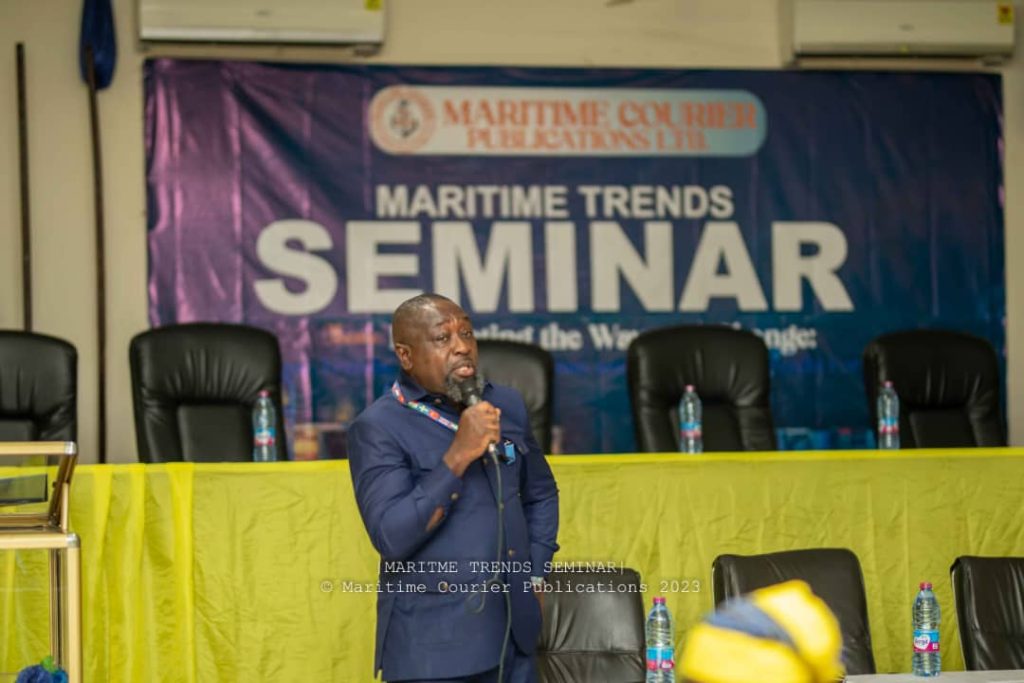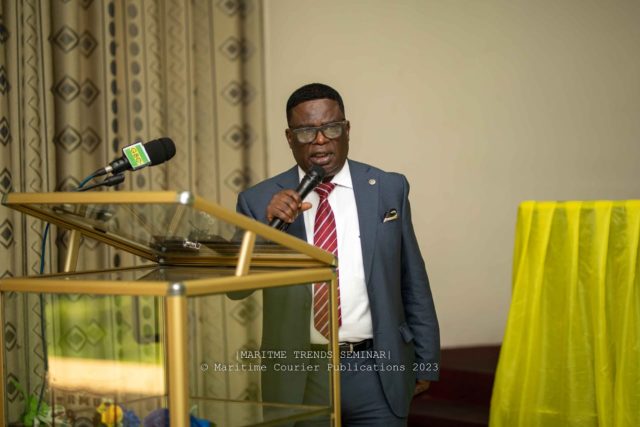CEO of the Ghana Chamber of Shipping Companies, Dr. Kofi Mbiah Emmanuel, is calling on government and relevant stakeholders to take keen interest in developing water bodies into tourist attractions.
Dr. Kofi Mbiah delivered a presentation on Maritime Trends and Challenges in Ghana at this year’s Maritime Courier Seminar, which was organised by the Maritime Courier Publications Ltd, where he touched on various matters regarding the Maritime space.
The presentation focused on the Sustainable Development Goals 14 (SDG 14) as regarding the Maritime space and the general business in shipping. It is believed that International Seaborne Trade will reach about 8.5 Billion by 2030 according to the United Nations Conference on Trade and Development (UNCTAD).
This prediction could be possible with certain technologies which are available now, but not available on a large scale, and ones in the future. Key players in the shipping industry are exploring the Maritime Autonomous Surface Ship (MASS). This technology will largely encourage ‘self-captained ships’.
It is possible in 4 ways: an automated system which would have ships crew on board; remotely controlled ships with seafarers on board but control of the ship is done remotely; remotely controlled ships without seafarers on board; and the last part will be a fully autonomous ship.
With this kind of technology, certain areas of the maritime industry will be heavily affected such as safety and maritime security, collision regulations, and others. All of these are being studied by the International Maritime Organisation (IMO). Maritime cyber security could be threatened as hackers may break into systems and divert cargo and likely cause accidents.
In addition, concerns of Greenhouse Gas emissions due to the ageing world fleet of ships are becoming a huge problem. Many ships are said to be either too old for retrofitting or too young for scrapping. However, the use of alternative fuels like batteries, cold ironing are under consideration.
With all these points raised, Dr. Kofi Mbiah had to make a call to action for attention to be given to the other water resources available which could be used to create employment and attract foreign exchange,
“If you go to Cape Coast, Keta, you go to Korle Gonno in Accra here, there are lagoons that we should be allowed to develop. They are natural phenomenons that develop with the sea and in other countries they are building maritime technoparks around these. Therefore it is important that we look at these and develop them as such. Not only will they generate employment and jobs but they are also tourist attractions and a number of innovative things can be done in that space:

He added that, “the Silicon Valleys that were built were built around such minds. Therefore you develop things that compliment one another within that resource. That is the kind of thing I am calling for”.
It is worthy of note that, most active players in the Ghanaian Maritime industry are not bothered much about losing their jobs with the introduction of these technologies, ‘these are the current trends and like Americans say, if you don’t ride you die’, said Mr. Akrong.
Mr Edward Akrong, president of Ghana Freight-forwarders Association) Ghana stressed on the frustration of certain laws and regulations which work against their hard work especially within the subregion will undermine tenets of the AfCFTA (African Continental Free Trade Area) .
“Trade is always about the smoothness of it, we want to facilitate it rather than inhibit it. The ambiguity of certain roles, laws, and processes and things. We have just gotten some commission’s order that cooking oil should only come through the sea port. That one statement and order alone should tell you the volatility of the situation and what it can create.
There are companies in the west african region who deal in cooking oil. If they are registered under the ECOWAS Trade Liberalisation Scheme (ETFS), it means they can freely move their goods across by any means into the country, it doesn’t mean they strictly have to use the sea port.
He added that there must be clarity in the orders given by regulators, ‘the government or whoever gave the order might have a reason why they gave that order, but then it is the ambiguity of it because the trader is lost. They are sitting down asking why did you do this. If you come out with genuine reasons to say this is the reason why I think we should do this, then we can all have some clarity.

In any case, the said statement order did not say you can start this in the next three months, it is almost immediate. And so what do they do, and so if you have trucks lined up at the borders and have to come in, what are they going to do?” Mr. Akrong questioned in the end.
Mr Akrong concluded that transportation is a crucial part in the success of the goals of AfCFTA and that they want to see a serious commitment on ensuring that people are able to do business, order for goods and get them fast in and around the subregion.









































